MercoPress. South Atlantic News Agency
Tag: British Antarctic Survey (BAS)
-
Tuesday, February 27th 2024 - 20:27 UTC
Scientific teams conclude summer studies at Antarctica’s giant Thwaites Glacier
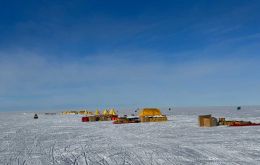
Teams of scientists and support staff with the International Thwaites Glacier Collaboration, (ITGC) have spent the past couple of months working on the Thwaites Glacier to advance our knowledge of how it interacts with the ocean and climate, and improve the predictions of its future contributions to sea level rise.
-
Tuesday, February 6th 2024 - 10:58 UTC
Britain fully confident in Falklands' security and capability of the three services
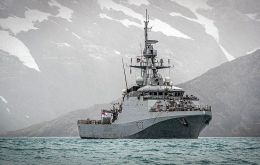
Britain remains fully confident in the security of the Falkland Islands and in the capability to defend them underlined a release from the Ministry of Defense, in response to a report in the London media claiming it only relies in a small Royal Navy patrol vessel and four RAF Typhoons to protect the South Atlantic archipelago.
-
Monday, February 5th 2024 - 10:51 UTC
BAS autonomous drone, Windracers ULTRA, to survey Antarctica at lower cost and lower carbon footprint
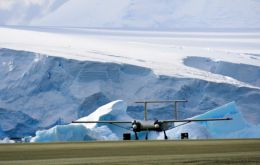
A team have arrived at Rothera Research Station, ready to start testing the new Windracers ULTRA autonomous drone in Antarctica. If successful, the new drone platform could represent a major addition to British Antarctic Survey’s scientific capability on the frozen continent – offering the potential to do more science at a lower cost, with a lower carbon footprint than traditional crewed aviation.
-
Tuesday, January 30th 2024 - 10:50 UTC
Effects on climate change by disturbing the seabed, BAS and Norway scientists
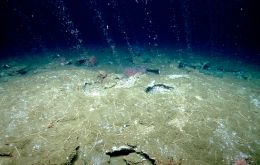
A study published this month in the journal Frontiers in Marine Science reveals that disturbing the seabed, through activities such as trawling, could increase the scale and speed of climate change.
-
Thursday, January 25th 2024 - 15:03 UTC
Scientists on board RRS Sir David Attenborough set to unlock Southern Ocean’s carbon secrets

A team of scientists are embarking on an ambitious 30-day scientific expedition on board Falkland Islands flagged RRS Sir David Attenborough to investigate how carbon dioxide moves and transforms in the Southern Ocean. The ship heads to the Weddell Sea to begin the PICCOLO cruise this week, from Punta Arenas, Chile.
-
Tuesday, January 23rd 2024 - 11:05 UTC
BAS scientists carry out aerial survey of sub-Antarctic largest penguin colony
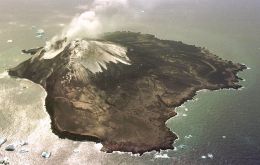
Researchers from British Antarctic Survey (BAS) have carried out aerial surveys of the remote volcanic Zavodovski Island in the sub-Antarctic to count the largest penguin colony in the world.
-
Thursday, January 11th 2024 - 17:13 UTC
BAS staff awarded Polar Medal in 2024 New Year's Honors List

British Antarctic Survey (BAS) have been awarded a Polar Medal in the 2024 New Year’s Honors List for their contributions to improving our understanding of Antarctica and enduring harsh Antarctic conditions.
-
Wednesday, November 29th 2023 - 14:12 UTC
Using a new AI tool to track the life cycle of icebergs in Antarctica
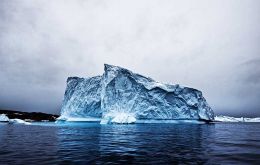
Researchers are using a new AI tool to detect icebergs in the Southern Ocean. This is the first step towards scientists being able to track the complete life cycle of most icebergs across Antarctica from satellite data. The study published in the journal Remote Sensing of the Environment points out a report from the British Antarctic Survey.
-
Saturday, October 21st 2023 - 10:50 UTC
BAS begins its ambitious 2023/24 Antarctic field season: 60 projects and 600 people

The British Antarctic Survey has announced that the 2023/24 Antarctic field season has started, with over 600 people beginning the journey South to work on over 60 projects on station and in the field. The season of work speaks clearly to the new 10-year science strategy, Polar Science for a Sustainable Planet, making the most of our operational capabilities across BAS five Antarctic stations, aircraft, and research ship.
-
Wednesday, September 20th 2023 - 08:13 UTC
Brunt Ice Shelf moving faster after calving of giant iceberg

Following the calving of the A-81 iceberg at the end of January 2023, the Brunt Ice Shelf is moving faster than before. It is currently moving approximately 4 meters a day towards the sea, whereas before the calving it moved at an average of between 1-2.5 meters a day.
